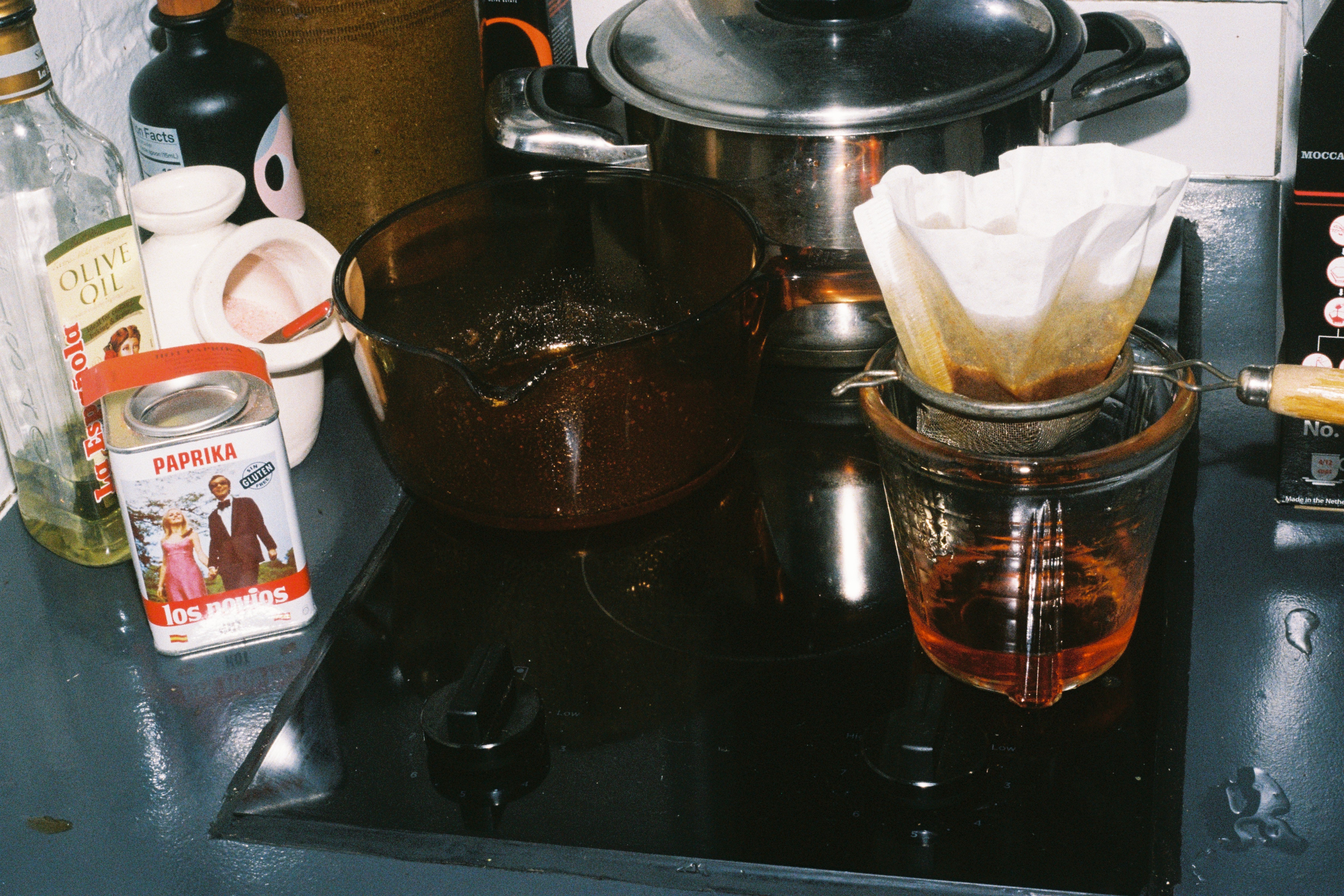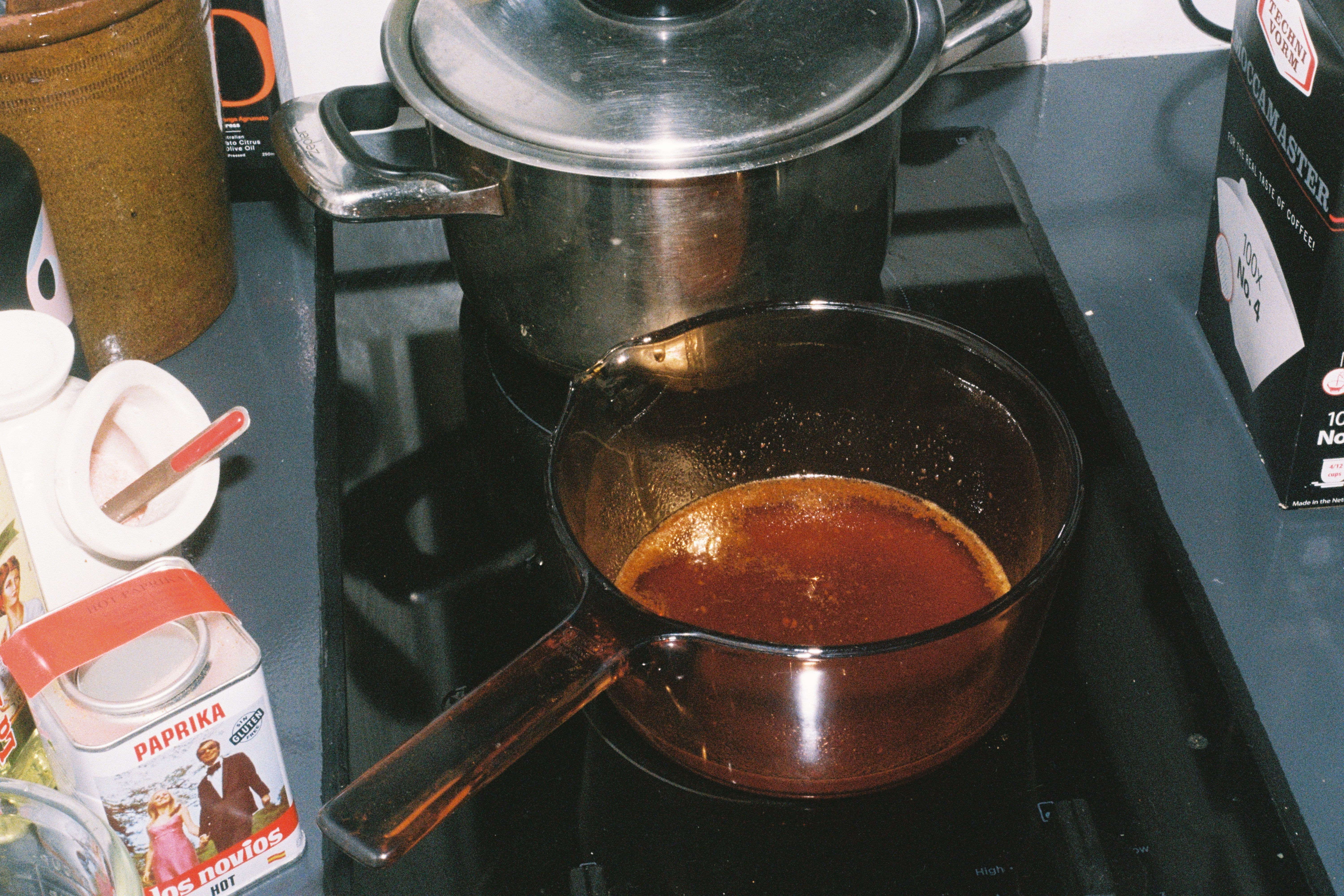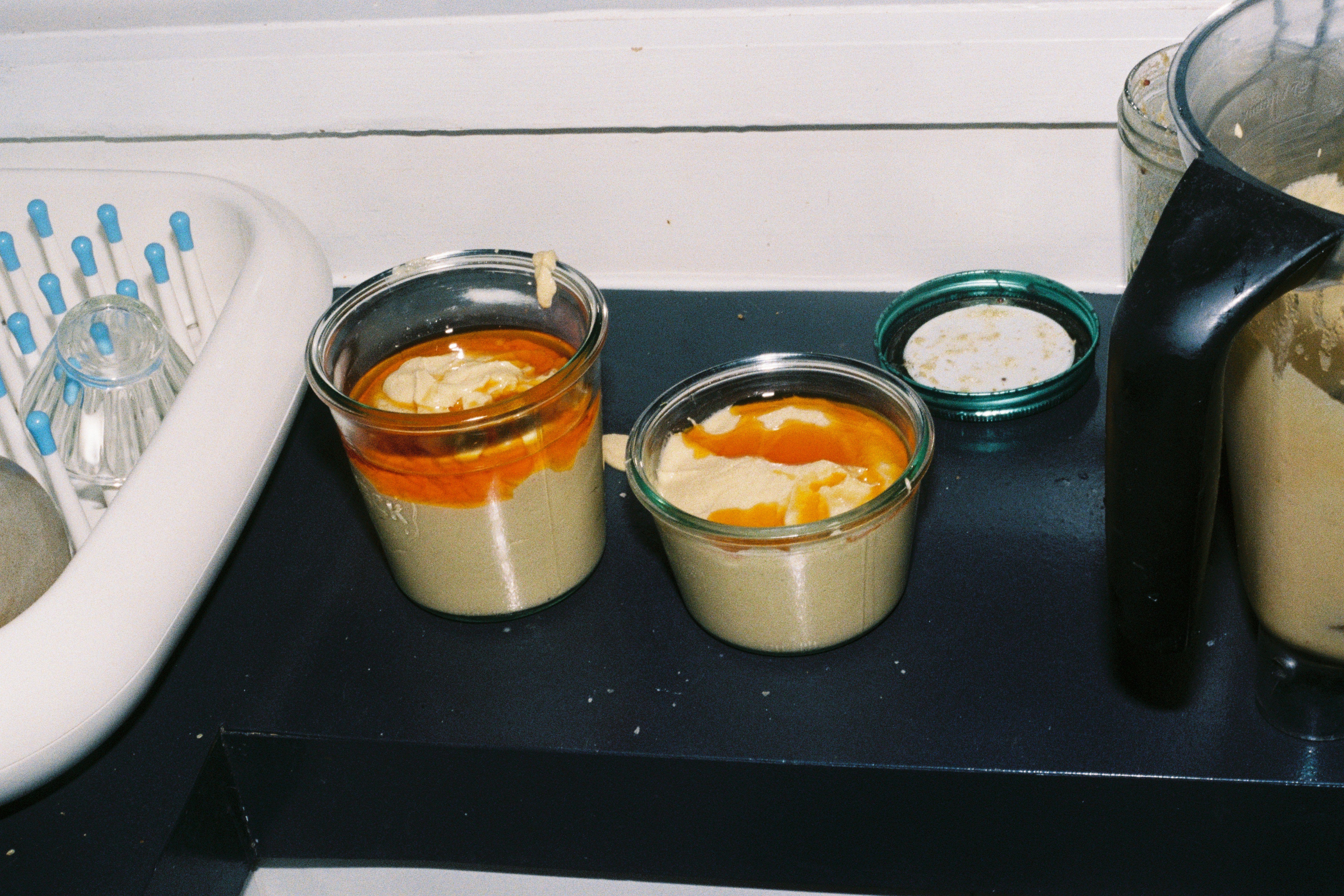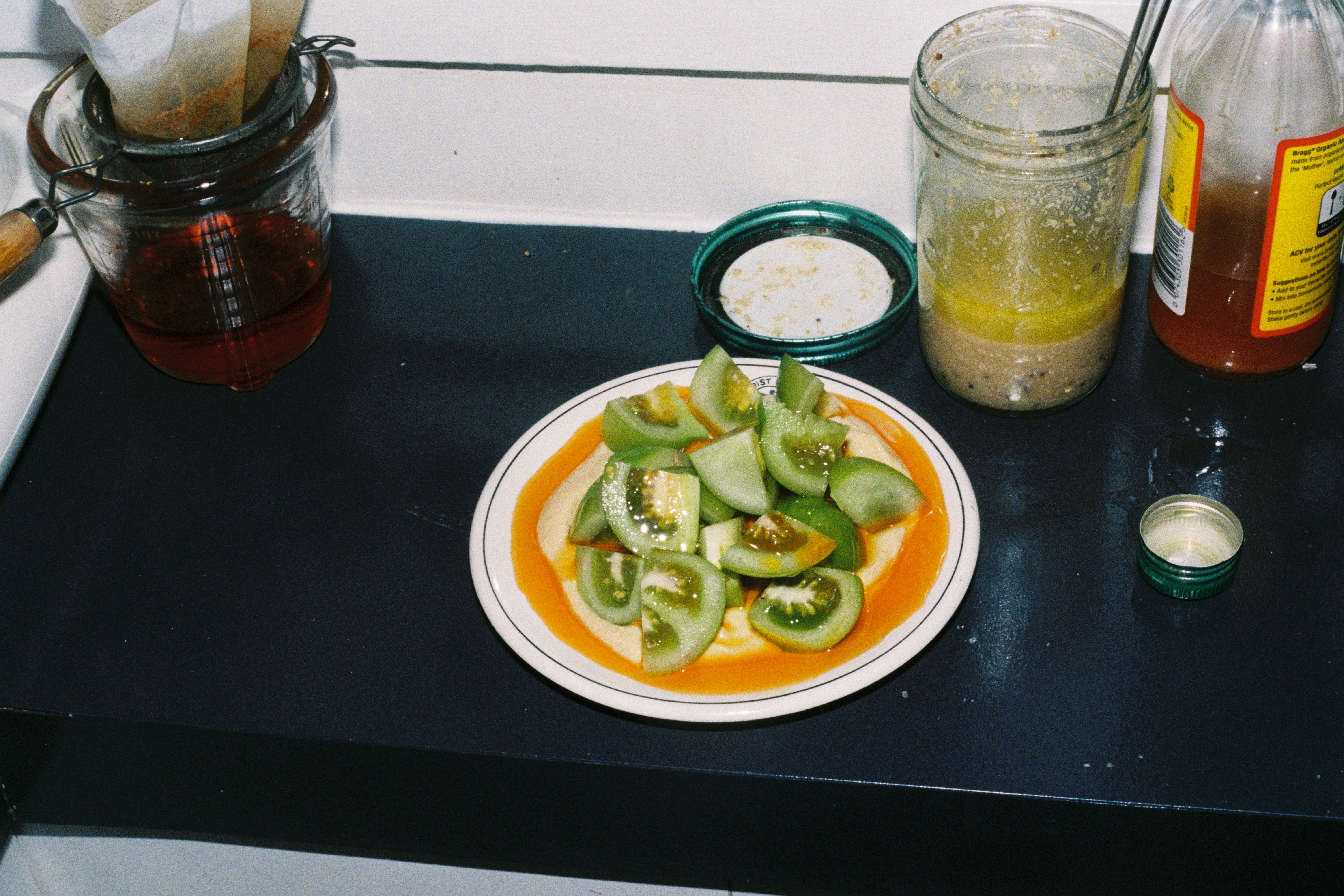Photography by Tracey Creed
Recipe by Amandine Paniagua and Tracey Creed
Words by Tracey Creed
Published March 3 2025
Heat the olive oil in a small saucepan over low heat for 2-3 minutes. Once the oil is warm, remove from the heat and stir in the paprika.
Let the oil sit until cooled.
Strain your paprika oil through a coffee filter, approx. 30 minutes. I used a Moccamaster filter.
This paprika oil can be refrigerated for up to two weeks. It absolutely must be refrigerated. If not, it actually goes off. That happened to me.
How to get a clear, bright paprika oil—and why seed oils are probably quite bad for you
The motivation for this recipe was because I missed Gemmayze Street’s hummus. It is a menu highlight and not without good reason. This hummus is so good you could almost cry. The generous layer of infused paprika oil just added to what was already divine and I missed it, so I decided to try and do it myself. I used light olive oil so that the oil was more neutral and would not dull the paprika. I used a Moccamaster filter; this takes longer, but the filter paper won’t let the paprika pass, so I would recommend buying coffee filters. I think this paprika oil tastes pretty good, the colour is bright, so vibrant—how I want all my food to be and how I want to feel. It keeps for two weeks maximum in the fridge but you can add it to so many things, you will go through it. You can also halve the recipe to avoid wastage. At the same time I watched a video which I talk about below on how seed oils, in particular, canola oil is in pretty much everything. Watching the video I linked above—that really made me reconsider whether the vegan mayonnaise and hummus I was buying weekly was okay.
I’m not avoiding seed oils 100%, but I’m pretty close. I do not eat ultra-processed foods. I try to maintain as close to a whole food diet as I possibly can, mostly to slow (potentially reverse??) my biological ageing. A diet devoid of ultra-processed foods—including fast food sounds intimidating, but taking on this diet and lifestyle commitment is much easier for someone in the loop. Diets that push high fat and animal proteins—there’s no truth to that. And fat is not human food. It’s not that necessary. Your body will convert carbohydrates to fat. Keto only worked because in addition to pushing high fats they are also pushing no grain, no sugars, nothing of a nature that can cause inflammation. That also felt like a trend, and the Internet is super confusing when it comes to nutritional information. There’s too much of it, it is not vetted and much of the media and research landscape is paid for by big food. And this is why seed oils are so controversial. This video, “The $100 billion dollar ingredient making your food toxic”, states quite clearly why this is—there is an insane amount of money tied up in this industry and it has every reason to do with why low quality seed oils have infiltrated our food supply. And the Heart Foundation, which is a joke, by the way, pushes seed oils. And perhaps this is because they are sponsored by Canolainfo. The American Heart Association President John Warner had a heart attack during the organisation's scientific conference in California in 2017.
I have a nutrition degree. I never monetised it, but having that knowledge and understanding of the big picture and essentially a belief system that the cause of illness, ageing, disease and loss of vitality is in eating what is unfit for human consumption. It is also in what the body retains. Amandine and I were discussing recently that if you’re on the Internet in these spaces, to hear somebody say “I was vegan but…” this is so common it’s almost not worth discussing. You only need to look at the general population. The Australian Government reported in 2024 that 66% of adults aged 18 and over were living with overweight or obesity. According to this article in The Guardian, more than half of humans are on track to be overweight or obese by 2035. And the other half? They might not be overweight, but are they healthy? So, is the mainstream advice to be relied on? I don’t think so. No one is out there heavily marketing fruits and vegetables. There just isn’t the same kind of money in it.



